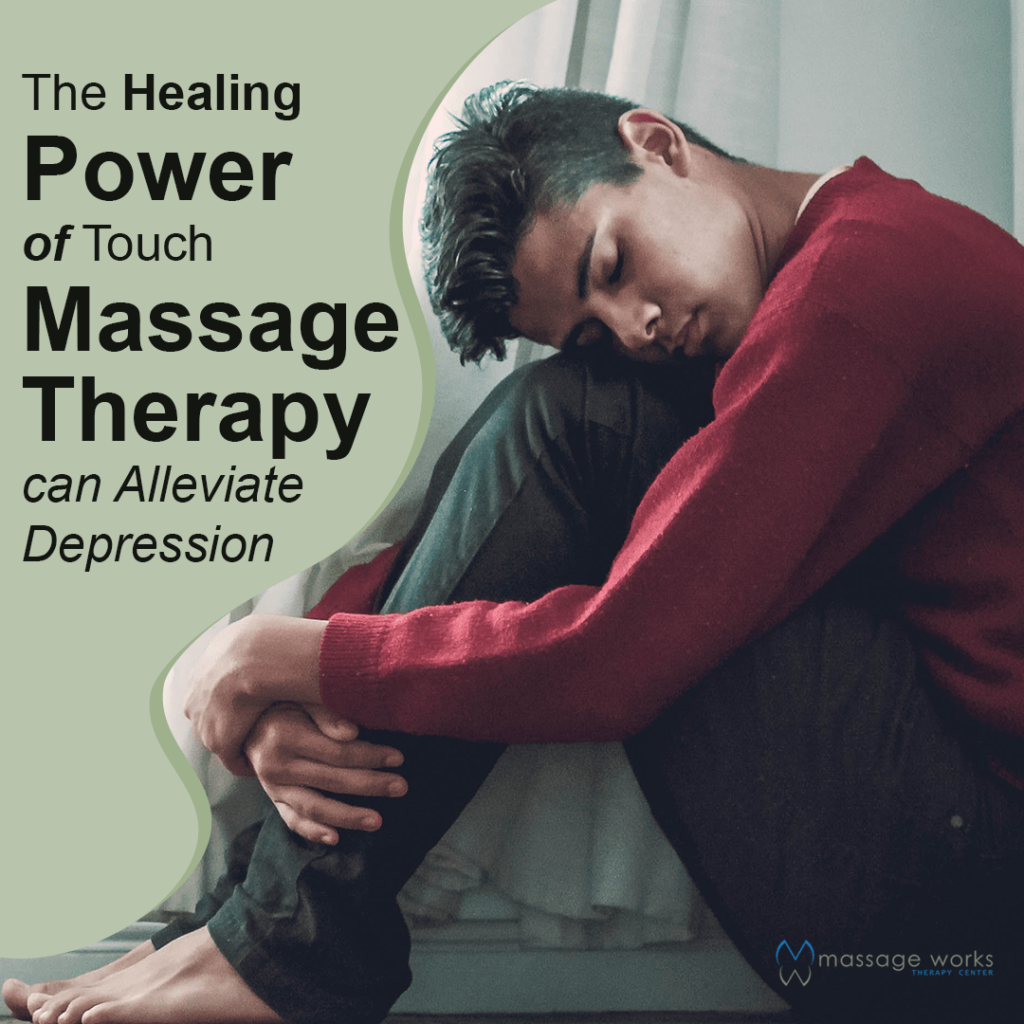
The Healing Power of Touch: Massage Therapy can Alleviate Depression
Depression is a pervasive mental health condition affecting millions of individuals globally. While traditional treatments like therapy and medication are essential components of depression management, complementary therapies like massage therapy have gained recognition for their potential to enhance mental well-being.
Understanding Depression
Before exploring the therapeutic potential of massage, it is crucial to grasp the complexities of depression. Depression is more than just occasional sadness; it is a debilitating mental health disorder characterized by prolonged feelings of sadness, hopelessness, and a profound loss of interest or pleasure in daily activities. This condition often manifests with physical symptoms such as appetite changes, sleep disturbances, fatigue, and feelings of worthlessness or guilt.
Conventional treatment approaches for depression encompass psychotherapy, medication, lifestyle changes, and support networks. However, alternative therapies like massage therapy offer complementary means to improve the overall mental and emotional health of individuals grappling with depression.
The Therapeutic Power of Touch
Massage therapy is an ancient practice that involves manipulating the body’s soft tissues, including muscles, tendons, and ligaments, through various techniques. The power of touch has long been recognized for its therapeutic benefits, both physical and psychological. In the context of depression, massage therapy can provide numerous advantages:
Improved Sleep Quality:
Sleep disturbances are a common feature of depression. Massage therapy promotes relaxation and can alleviate sleep problems associated with the condition. Regular massage sessions have been linked to better sleep quality and duration, which is essential for overall mental and emotional well-being (2).
Heightened Body Awareness:
Depression often leads individuals to disconnect from their bodies, making them less aware of physical sensations. Massage therapy encourages a heightened sense of body awareness, helping individuals reconnect with themselves. This increased awareness can lead to better self-care practices and an improved understanding of the mind-body connection (3).
Release of Endorphins:
Massage therapy stimulates the release of endorphins, the body’s natural painkillers and mood elevators. Endorphins create feelings of pleasure and reduce the perception of pain, providing immediate relief from the emotional and physical discomfort often associated with depression (4).
Encouragement of Relaxation and Mindfulness:
During a massage session, individuals are encouraged to focus on the present moment, promoting mindfulness and relaxation. Mindfulness techniques are well-established for their positive impact on mental health, reducing symptoms of depression and anxiety (5).
Reduction of Muscle Tension:
Depression can manifest physically through muscle tension, aches, and pains. Massage therapy targets these physical symptoms by releasing muscle tension and promoting relaxation, alleviating discomfort and contributing to an overall sense of well-being (6).
Types of Massage Therapy for Depression
Different massage techniques can be beneficial for individuals dealing with depression. Some of the most effective types of massage therapy include:
Swedish Massage:
Known for its gentle, flowing strokes, Swedish massage promotes relaxation, reduces stress, and enhances overall well-being (7).
Deep Tissue Massage:
This technique addresses chronic muscle tension by applying firmer pressure to release deep-seated knots and adhesions (8).
Aromatherapy Massage:
Combining massage with essential oils can enhance the therapeutic effects, promoting relaxation and improving mood (9).
Hot Stone Massage:
Hot stones placed on key areas of the body help to release tension and induce a deep sense of relaxation (10).
Reflexology:
Focusing on specific pressure points on the feet and hands, reflexology can reduce stress and promote relaxation (13).
Scientific Evidence and Expert Opinions
To support the effectiveness of massage therapy in alleviating depression, let’s examine some scientific studies and expert opinions:
A meta-analysis published in the Journal of Clinical Psychiatry in 2010 analyzed the results of 17 studies involving nearly 800 participants. The analysis concluded that massage therapy significantly reduced symptoms of depression compared to control groups (14).
Dr. Tiffany Field, a leading researcher in the field of touch and massage therapy, has conducted extensive studies on the benefits of massage for various health conditions. Her research has consistently shown that massage therapy can improve mood, reduce symptoms of depression, and enhance overall well-being (15).
In a study published in the Journal of Alternative and Complementary Medicine in 2013, researchers found that a single 45-minute session of Swedish massage reduced cortisol levels and increased white blood cell count, suggesting a positive impact on the immune system and stress response (16).
The American Massage Therapy Association (AMTA) recognizes massage therapy as a valuable complementary treatment for individuals with depression. They recommend that individuals with depression consult with qualified massage therapists as part of a comprehensive treatment plan (17).
Conclusion
Depression is a complex and challenging condition that requires a multifaceted approach to treatment. While massage therapy should not replace conventional therapies, it can be a valuable complementary tool in managing depression. Supported by scientific evidence and expert opinions, massage therapy’s ability to reduce stress, improve sleep quality, enhance relaxation, and release endorphins offers significant potential for alleviating the symptoms of depression.
Individuals dealing with depression should consult with mental health professionals to create a comprehensive treatment plan. When integrated into a broader strategy, massage therapy can play a significant role in helping individuals regain their sense of balance, well-being, and hope in the face of depression. The therapeutic power of touch offers a pathway to renewed vitality and emotional resilience, making massage therapy a promising ally in the journey towards recovery.
References:
Field, T. (2016). Massage therapy research review. Complementary Therapies in Clinical Practice, 24, 19-31.
Hou, W. H., Chiang, P. T., Hsu, T. Y., Chiu, S. Y., & Yen, Y. C. (2010). Treatment effects of massage therapy in depressed people: A meta-analysis. Journal of Clinical Psychiatry, 71(7), 894-901.
Field, T., & Diego, M. (2008). Vagal activity, early growth and emotional development. Infant Behavior and Development, 31(3), 361-373.
Teixeira, S. J., & Pereira, A. (2019). Massage therapy and mindfulness in major depressive disorder: A narrative review. Journal of Bodywork and Movement Therapies, 23(1), 80-85.
Ernst, E., & Fialka, V. (1994). The clinical effectiveness of massage therapy: A